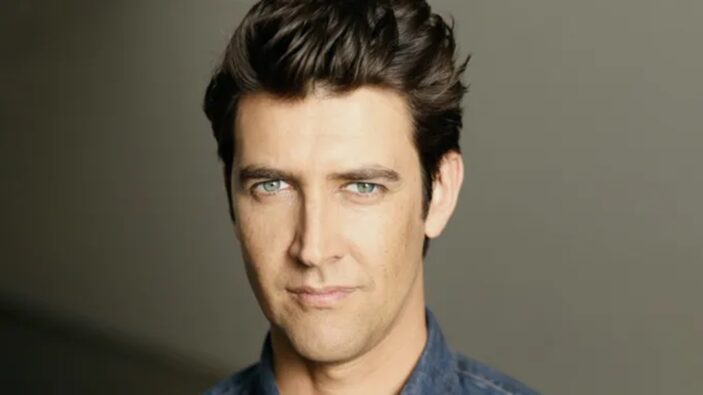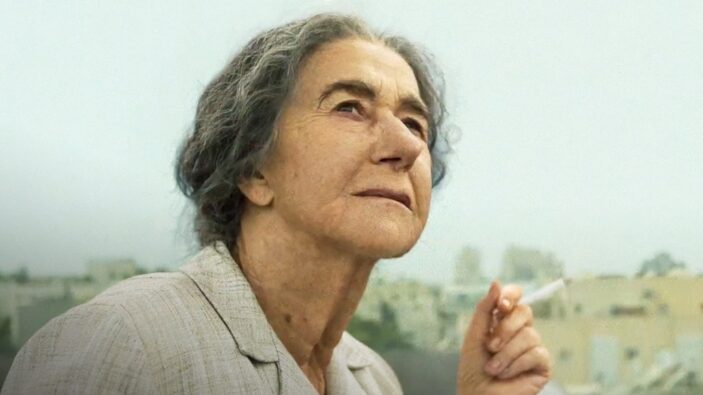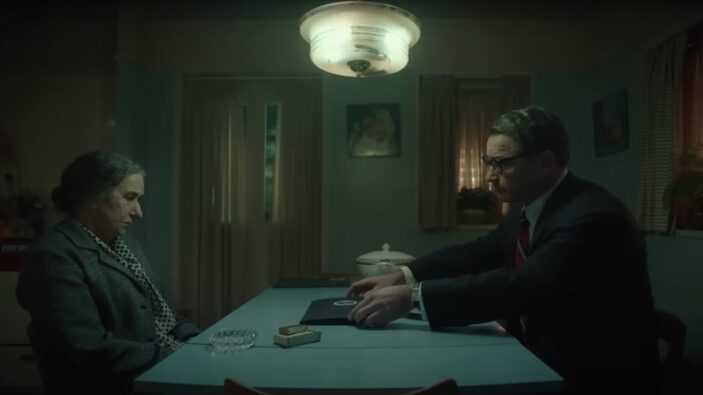
One of only two Israeli filmmakers to have won an Academy Award, Guy Nattiv is amplifying his voice as an Israeli director and screenwriter with the release of Golda, a ticking-clock thriller sharing the intensely dramatic events, high-stake responsibilities, and controversial decisions that Golda Meir, the first and only head of government in the Middle East – also known as the ‘Iron Lady of Israel’ – faced during the Yom Kippur War in 1973.
Talking with Peter Gray ahead of the film’s release in Australian theatres, Nattiv spoke of reshaping the film when the pandemic cost it the majority of its budget, what both Helen Mirren and Liev Schreiber uniquely brought to their roles, and how important it was to maintain the altering public perception of who Golda truly was.
Golda Meir is not someone I knew of. I don’t know her story. I always appreciate seeing films like this that allow an insight into someone, into a life I never knew about. Before we get to this film specifically, were there any biopics for you that you saw growing up that stayed with you? That made an impact on you about people you didn’t know?
Yeah, I mean, I’m a big fan of Oliver Stone, and I actually just met him at the Jerusalem Film Festival last year, so JFK is one of my favourite biopics. It brought something different on that matter. I also love Gandhi. I love The Queen with Helen Mirren. They feel more alternative. Their approach (on their subject) is more artistic. Like Frost/Nixon. Have you seen that? It’s a great movie. It’s almost like a thriller. I appreciate those.
Here, you know, (Golda) started out as a project with Amazon with an $80 million budget. It was originally like an 80% war movie, and maybe 20% was on Golda. Then the pandemic happened, and we lost all our budgets. We understood that we had to bring the war inside to shoot this. We brought the war into the room the way that Golda experienced it. That’s how it became this kind-of chamber movie.
I was going to ask about the film’s structure. There’s so many ways to approach telling someone’s story. Do you go from their childhood? Obviously with losing so much of your budget, as you mentioned, that forced the change of story?
Yeah, we didn’t have the budget to a more classical biopic. Have you seen the movie Downfall?
I haven’t, no.
It’s based on the last 10 days of Hitler’s life. It’s kind of a war movie. You see Hitler in the bunker, and the entire movie is in this claustrophobic bunker. You see how the commanders were in this very last act of his life. I was influenced by those chamber movies. I wanted the drama within four walls, rather than go out and shoot the war.

I understand when it comes to teachings in school in Israel there’s been a massive perception shift towards Golda Meir. Was that part of the importance for you in telling this story? In showing that she wasn’t the villain so many people saw her as?
Yeah, I mean, (Golda) was the pariah of Israel. She was the face of failure. Everybody hated her. She was the most hated woman in the country. And it was only 10 years ago that the declassified documents came out and we saw the truth. We read the truth. We understood that she was not the only one. It was a lot of other people that led her wrong, including the intelligence department, but she took responsibility and resigned.
What we see today is basically the opposite. We see a man who’s hanging onto this chair and holding tight, because he’s afraid to go to prison and admit that he was wrong. He’s the face of failure. (Golda) just understood it earlier, and she didn’t have the ego. That’s where Golda became human, and in this film we see her the way no one knew her as.
One of the great things about these films is that we do get to see the humanity of someone who isn’t always allowed to show that vulnerability. And it certainly helps getting audiences on the side of Golda by casting someone like Helen Mirren. Was it difficult getting her for the role?
There’s a great story here, because when I came on board to the Amazon project, Helen was already attached. I was a director for hire. The grandson of Golda Meir actually thought of Helen. He said when he thinks of Golda he sees Helen. The humour. The humanity. The strength of his grandmother. He saw that in Helen. She was his choice. Of course, when I met Helen I was meeting one of the best actors of our time. I admire her.
She came to my house, for the first time, during the pandemic, and we had this amazing talk. She had volunteered in a kibbutz in Israel in the 60s. She knew what it meant to be in Israel at that time. I was fully convinced that she could make (Golda) happen. And I surrounded her with Israeli actors that I brought in, because I wanted her to feel on the outside, the way Golda did. I think it worked for all of us.

And offsetting that you have Liev Schreiber as Kissinger. I think he’s truly one of the most underrated actors. He’s just incredible. He’s such an inspired choice.
I love Liev. He’s such an amazing Jewish voice in our industry. He’s a great actor. And you’re right, he’s underrated. I think he should have won an Oscar a long time ago. I got in touch with him through his agents, who I know very well. The crazy thing is Liev met with (Henry) Kissinger a few days before he came to set. He met with him in his office in New York, and he got all these little stories about meeting Golda, and he brought that layer of information to his performance. He completely changed the scenes. He was wonderful. He came for two days, and just absolutely nailed it.
You have Liev meeting Kissinger, and Golda’s grandson overseeing the film…does that add a sense of confidence to you as a director in telling this story? That there’s less pressure because you have the support of people that knew her?
Yes, but the big help would have been if I got the budget to make the film. Then I would have a little bit more air to (show) what happened before the war and afterwards. We had a very narrow window and had to focus on the 10 days of the war. You always want more, especially in biopics. It’s not the classic biopic, as we said. Like, Oliver Stone’s Nixon? That was a classic biopic. You see his entire life. We did not have the budget for that. That’s why I focused on those 10 days.
Golda is now screening in Australian theatres.
